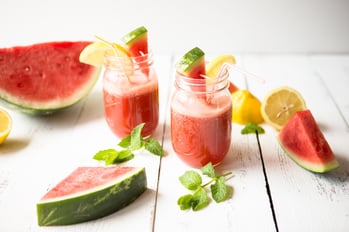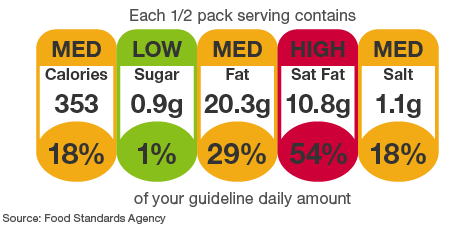It’s the sugar content that counts: consumer attitudes to healthy food revealed
Consumers trust that smoothies, juices and raw bars are healthy - but sugar (natural or not) is putting some people off even health branded goods, according to research from Catalyx.
With raw foods moving out of a niche category and into the mainstream and the sugar tax high on the agenda in the UK, we thought it would be interesting to see what people really thought, so we used our Catalyx CROWD platform to canvass 50 UK-based consumers to discover what they really think about "healthy" food and drink. Seeking qualitative insights, we asked our CROWD for their opinions on the healthiness of various foods, and found that concerns with preservatives and artificial ingredients barely come out , but the S-word is the key reason why health drinks and bars may not be seen as truly healthy.
It wasn't so long ago when all we cared about was the calories something had. Things have changed. Consumers are well versed in a whole lot more these days.
 Our consumers knew the difference between natural and added sugars; the former is tolerated... sometimes, whereas the latter provokes pure rejection when consumers speak about healthy eating. Some of our crowd said they only drink no-added sugar drinks, while others pointed to the high natural sugar content in smoothies as a reason to drink in moderation. One actually referred to smoothies as “junk food”, despite the natural ingredients.
Our consumers knew the difference between natural and added sugars; the former is tolerated... sometimes, whereas the latter provokes pure rejection when consumers speak about healthy eating. Some of our crowd said they only drink no-added sugar drinks, while others pointed to the high natural sugar content in smoothies as a reason to drink in moderation. One actually referred to smoothies as “junk food”, despite the natural ingredients.
Keywords emerged in discussions about raw bars, including the very name itself: is “raw” any better than “all-natural”? Our qualitative findings also show terms such as vegan and vegetarian, non-GMO and no preservatives joined “no added sugar” as things consumers look out for.
And we found people are increasingly avoiding fruit because of its natural sugar content - looking more towards nuts and vegetable-based snacks to satisfy cravings instead.
Savvy consumers no longer believe “low fat / low sugar” claims
Our findings show that consumers are now very well informed and less prone to believing product claims of “healthy” and “low fat” - they look for food that will help maintain energy levels, giving a natural boost whenever it’s needed. This support findings elsewhere in the industry.
Mintel found that 62% of consumers are worried about sugar, with 55% sceptical about artificial sweeteners, too. To combat this, 53% of Brits are actively reducing the amount of sugar in their diets - helped along, no doubt, by the new “sugar tax” introduced to the UK this month. And less than half of consumers say naturally-occuring sugars are fine, perhaps worrying for the raw food and drink industry.
It’s not just a UK thing, either: surveying 8,000 consumers in the US, Mexico, Brazil, UK, Germany, Spain, Vietnam and Japan, DSM found that 47% of consumers are more concerned about sugar consumption than three years ago, with the concern strongest in young women, consumers under 35 and people with children.
What does this all mean for healthy food producers?
It’s an oversimplification, but try to highlight any information regarding sugar content in consumer-facing communications. Don’t just rely on the government-sanctioned food labelling, and use the “traffic light” labels that help consumers to immediately identify the sugar content.
It’s an oversimplification, but try to highlight any information regarding sugar content in consumer-facing communications. Don’t just rely on the government-sanctioned food labelling, and use the “traffic light” labels that help consumers to immediately identify the sugar content.

Consumers today are savvy enough to know that claims of “no added sugar” does not mean the product is low in sugar, or that “fat-free” does not mean low-calorie. Manufacturers such as Ugly drinks, Nix and Kix, and Hunter & Gather foods are building a business based on clearly signposting nutritional content.
Want to research your own crowd? Catalyx helps brands beat your consumer’s expectations by getting their thoughts, behaviour and ideas into your organisation, fast. We work with many of the world’s leading brands, including Ariel, Pantene and Gillette. Get in touch to learn more about how we can help your business discover better brand-building solutions in days, not months.
About us
At Catalyx, we have captured all sorts of data from over 100,000 consumers in 32 different languages across 5 continents processing and analysing several million pieces of text, photos, videos and numeric content to help grow the brands of our clients.
In so doing, we have picked up 2 major awards, been added to the Data 50 Global Leader hall of fame and been recognised by the Next Generation Market Research for our disruptive innovation and by EXPLOR for our exemplary online research. Not bad for a 5-years old agency!